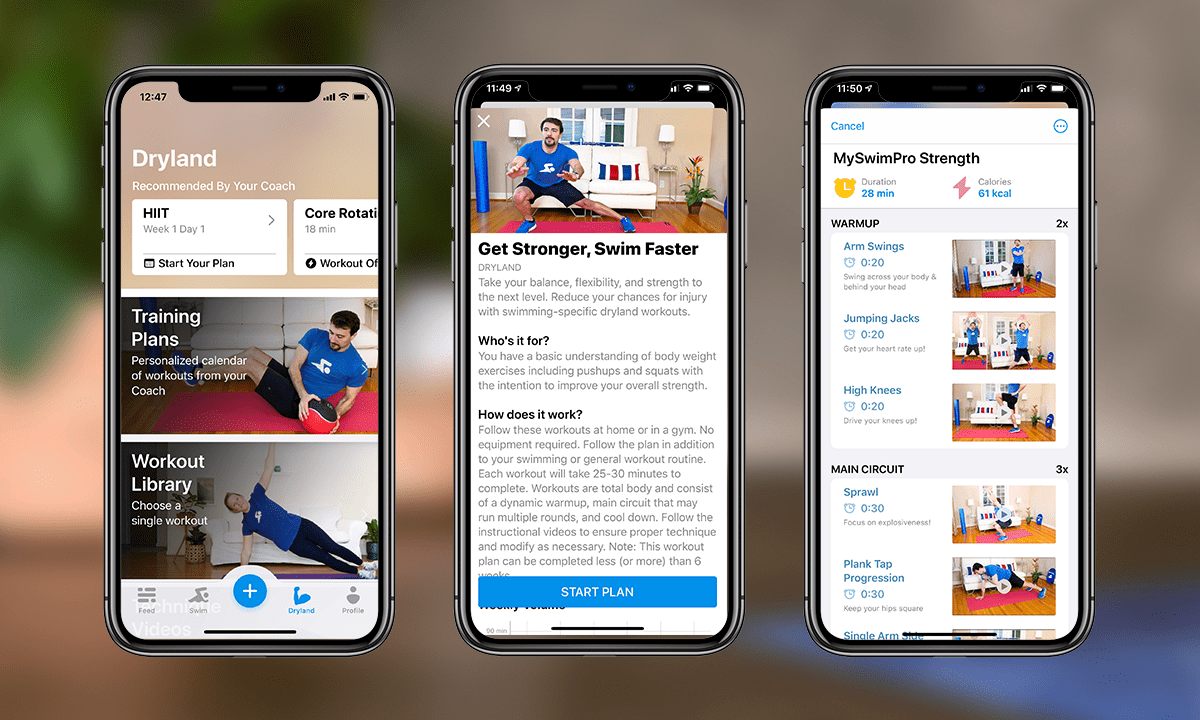As global concern about the novel coronavirus (COVID-19) continues to grow, we wanted to share tips to help swimmers stay safe and healthy.
Watch the video:
Listen to the podcast:
What is the Coronavirus?

According to the World Health Organization (WHO), coronaviruses (CoV) are a large family of viruses that cause illness ranging from the common cold to more severe diseases such as Middle East Respiratory Syndrome (MERS-CoV) and Severe Acute Respiratory Syndrome (SARS-CoV). A novel coronavirus (nCoV) is a new strain that, according to the WHO, was first reported from Wuhan, China, on 31 December 2019.
Can the Coronavirus Spread in a Pool?
While chlorine can deactivate the coronavirus according to the Health Protection Surveillance Centre, some pools aren’t properly chlorinated and may not fully deactivate it. It’s important to think not just about the pool water itself, but also about the close proximity to others in your lane, in the locker room and on your commute to and from the pool.
In an interview with Channel News Asia, Professor Wang Lifa from Duke – NUS Medical School explained that “transmission [of coronavirus] through the swimming pool is unlikely unless the person is swimming very close to an infected person.” Dr. Wang was also part of the World Health Organization’s (WHO) emergency committee that looked into the virus outbreak.
The WHO released a set of guidelines about COVID-19 spread in pools. Read it here >
Additionally, FINA has established a COVID-19 Task Force to determine a plan of action should the virus affect international competition.
Tips for Avoiding Coronavirus
It’s important that each of us do our part to contain the spread of disease so more vulnerable members of the community, such as older people or people with compromised immune systems, don’t get sick. It’s up to each of us to keep ourselves and our communities healthy!
Practice Good Hygiene

As with other contagious diseases, the United States Centers for Disease Control and Prevention (CDC) recommends the following to reduce your chances of getting sick:
- Avoid touching your eyes, nose and mouth as much as possible.
- Wash your hands with antibacterial soap after using the bathroom, before eating and after encountering a sick person.
- Cover your nose and mouth when you cough or sneeze.
- Disinfect objects or surfaces in your home that are frequently touched, such as tables and doorknobs.
Stay Home if You are Sick
If you are feeling under the weather, it’s best to stay home to avoid spreading your illness to others. This doesn’t just apply for work or school; if you’re feeling sick, stay out of the pool, too! If you feel up for it, try incorporating some light walks or at-home dryland workouts until you’re feeling better.
If you are sick for more than a few days, see your doctor to establish a treatment plan.
Related: Should I Swim When I’m Sick?
Avoid Traveling to High-Risk Areas
It is recommended to avoid all non-essential travel to countries deemed high-risk. For a full, regularly-updated list of these locations, visit the CDC’s website.
My Pool is Closed. What Should I Do?

If your pool is closed for the foreseeable future, now is a good time to focus on dryland training. Check out these dryland ideas:
- 10 Core Exercises for Swimmers (No Equipment Required!)
- Dryland Exercises for Swimmers
- 30 Dryland Workouts for Swimmers Using TRX Suspension Cables
- 20 Dryland Workouts for Swimmers with a Medicine Ball
- 10 Swiss Ball Dryland Exercises for Swimmers
- 5 Resistance Band Dryland Exercises for Swimmers
- 15 Low Impact Dryland Exercises for Swimmers
If you go to a gym, make sure to wipe down your equipment with a disinfecting wipe before and after you use it, and to wash your hands before and after your workout.
Dryland Training Plans

Check out the dryland training plans in the MySwimPro app for swimming-specific workouts designed for all ages and skill levels! Download the app and start a free, 30-day trial of ELITE COACH to unlock all of our dryland training resources.
Related: How Swimmers Can Workout Without a Pool
For more information about the novel coronavirus, visit the World Health Organization’s website or read this article from the American Society for Microbiology. While our advice is applicable generally, it is important to stay up to date with your local government’s policies relating to the coronavirus. If you are concerned you may be at risk to get coronavirus, talk to your doctor.
The coronavirus knows no national, racial, financial or religious boundaries. This virus or any other health challenges can impact any of us. This is a reminder that we’re all one big family. Support each other and stay safe.
Happy swimming!


6 Comments
Thank you for this useful info.
Hola en mi alberca que es pública no han tomado medidas contra el Covid 19, compartiré está información con el Jefe de la Piscina me parece muy útil.
Gracias
Santiago GC
Gracias, Santiago!
Pingback: COVID-19 IS STEALING TRAINING HOURS: USE YOUR BODY WISELY - Swimmer Strength
Great article! At this point, the research community does not know if transmission of the COVID-19 virus from exposure to feces in recreational waters is possible or not, but the overall consensus is that it might be possible. The virus has also shown resilience in natural freshwater environments including lakes and streams. Swimmers need to refrain from the water for some time, until further information is revealed.
I swim in an outdoor chlorinated pool. It is heated in winter and has very few swimmers. I don’t use the locker rooms.